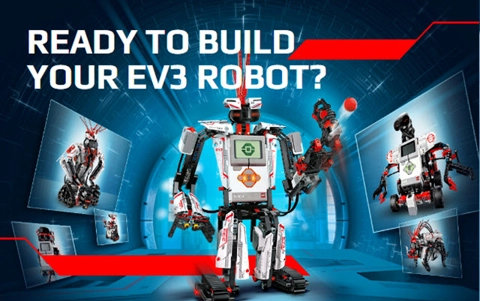LEGO® Mindstorms® EV3
LEGO® Mindstorms® EV3 is a set of building blocks and programmable components that students can build into various robots, designed to teach students different aspects of programming and robotics. This site contains building instructions, example robots, links to the programming app used to control their robots, videos and other materials to help students develop their robots.
Additional details
| Year band(s) | 5-6, 7-8 |
|---|---|
| Format | Web page |
| Australian Curriculum Digital Technologies code(s) |
AC9TDI6P05
Implement algorithms as visual programs involving control structures, variables and input
AC9TDI6P02
Design algorithms involving multiple alternatives (branching) and iteration
AC9TDI8P05
Design algorithms involving nested control structures and represent them using flowcharts and pseudocode
AC9TDI8P06
Trace algorithms to predict output for a given input and to identify errors
AC9TDI8P09
Implement, modify and debug programs involving control structures and functions in a general-purpose programming language |
| Technologies & Programming Languages | Robotics and drones |
| Keywords | Programming, Robotics, Building blocks, Sensors, Algorithms, Computational thinking, Robots, EV3, STEM |
| Integrated, cross-curriculum, special needs | STEM |
| Organisation | LEGO Group |
| Copyright | 2016 the LEGO Group. May be subject to Copyright Act statutory licence. |
Related resources
-
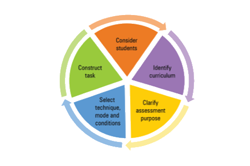
Blueprint for designing and constructing an assessment task
The Assessment and reporting advice and guidelines support teachers to implement and assess Digital Technologies.
-

Robotics through coding
Read the article in this Scan magazine by Kylie Burrett, a teacher librarian at Whitebridge High School, who explains how a lunchtime robotics and coding club has helped students to engage with technology and learn essential 21st century skills.
-

The new work mindset
Change summary to During 2020, the global pandemic COVID-19 has seen Australia, like many other nations across the world, struggling to forecast what the future of work will look like given the pandemic has impacted almost every aspect of how we live, learn and earn.
-
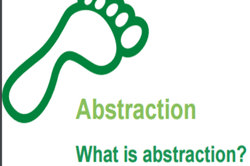
Abstraction
Want to find out more about what abstraction is and its role is in computational thinking? This resource outlines: What is abstraction, why is abstraction important and what abstraction looks like in the primary curriculum. Requires free log-in to access resources.
-
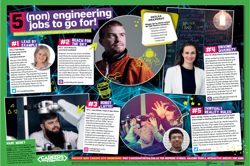
Careers with Engineering
These three posters show students some of the amazing ways engineering is used everyday, and the awesome careers they can pursue in these areas.
-

Classroom ideas: Choose your own adventure (Years 3-6)
In Digital Technologies, students from Year 3 onwards should be planning and implementing projects that include branching (decision-making). Creating a ‘choose your own adventure’ story is an excellent way for students to design and implement a project that makes use of branching.
-
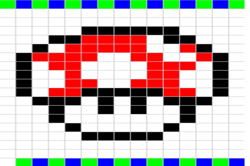
Pixels and binary digits assessment
Students are given a bitmap image made up of coloured pixels.
-

Network infographic assessment
In this assessment task, students demonstrate their ability to distinguish between different types of networks and defined purposes.
